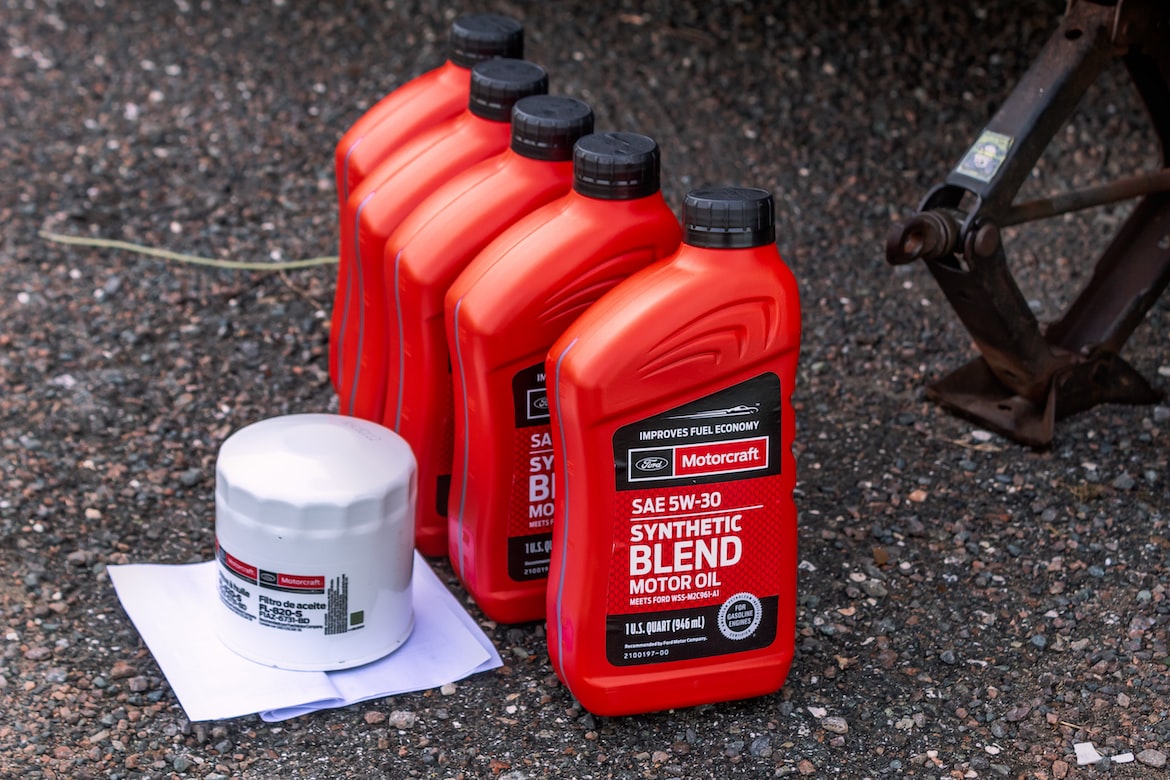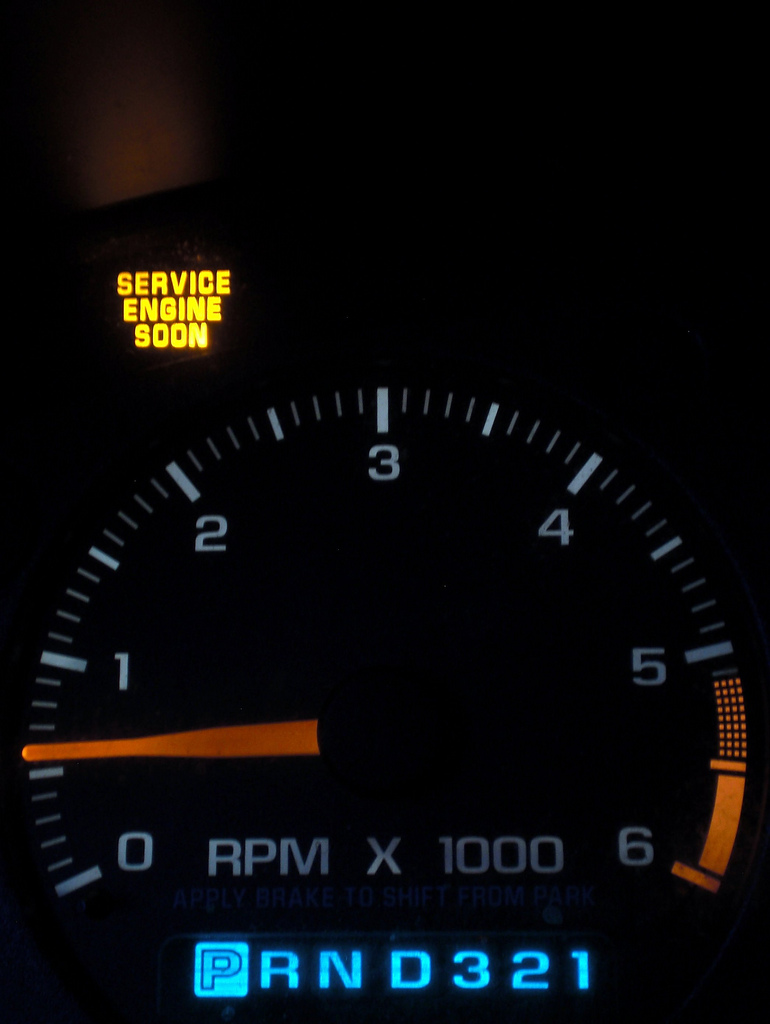Posted on 7/3/2023

Photo by Lorenzo Hamers on Unsplash Do I Need To Go To A Mechanic For Every Dashboard Light? When you're driving, the last thing you want is to see a warning light flashing on your dashboard. It's natural to feel concerned and wonder if you must rush to the nearest auto shop. But the truth is, not every dashboard light requires immediate attention from a mechanic. For most dashboard lights, you can look up what they mean in your manual and determine if going to a mechanic is necessary. You may need to inflate your tires or make a quick fix. Otherwise, it’s best to visit a mechanic for consultation. Understanding the different types of lights and their significance can save you time, money, and unnecessary trips to the auto shop. This blog post will break down the most common dashboard lights and help you determine when to consult a mechanic. T ... read more
Posted on 6/1/2023

Photo by Lorenzo Hamers on Unsplash New Vehicle This Summer? Don't Forget a PPI! Summer is here, and for many people in San Diego, that means it's time to buy a new vehicle. But before you sign on the dotted line, get a Pre-Purchase Inspection (PPI) from a trusted auto repair shop. A PPI can help you avoid costly surprises and give you peace of mind knowing that your new ride is in good shape. What is a Pre-Purchase Inspection? A PPI is a thorough examination of a vehicle by a qualified mechanic. During the inspection, the mechanic will check for any mechanical, electrical, or safety issues affecting the vehicle's performance or safety. They will also look for signs of wear and tear, accident damage, and other potential problems that could impact the vehicle's value. Why is a PPI so important? Buying a car is a significant investment, and you wan ... read more
Posted on 4/1/2023

Photo by Anja on Unsplash Summer Strut: What Are Your Struts, and What Do They Do? Many components of your car's suspension system work together to ensure a smooth and comfortable ride. One of the most important of these components is the strut. When your car hits a bump or pothole, the struts compress to absorb the impact. The spring in the strut helps to dampen the rebound and prevent the car from bouncing excessively. This helps to keep your car's wheels in contact with the road, providing better traction and control. At Convoy Auto Repair, we want to empower you to take great care of your vehicle. In this blog post, we'll take a closer look at what struts are, how they work, and why they're so crucial for your car's safety and performance. What Are Struts? First, let's define what struts are. Struts are a type of suspension component designe ... read more
Posted on 1/1/2023

Photo by Rinald Rolle on Unsplash New year, new chance to take care of your vehicle and ensure its optimal lifespan. You may want to start your car care resolutions with the basics, but what does that entail? Oil changes are an essential part of car maintenance. They're something that many people don't think much about, but they can make a big difference in how well your car runs. In this article, we'll look at why oil changes are so significant, what happens when you do or do not change your car's oil regularly and why choosing the right type of oil is critical. We'll also cover some essential tips for ensuring your engine stays clean and protected during its lifetime! What An Oil Change Does Your car's engine needs oil to perform its most basic function: lubricate the moving parts, so they don't wear out. A well-maintained car will last longe ... read more
Posted on 4/1/2017

We were reminded of this adage due to the particularly wet winter we had. But the dryness of Summer is still far off. So, with some wet weather still to go, we thought we would share some simple tips that will help keep you safer in the wet weather. Rain changes things about driving, and habits that you might have may need to be adjusted. Slow down and increase the distance between yourself and the next car. You have a poorer stopping distance on wet surfaces. Turn on your lights, even during the day. Other cars notice you more quickly with your lights on. When turning, brake before you enter the turn, not during the turn, then accelerate out of the turn. Avoid driving in the ruts that naturally form within lanes by driving just slightly off center from the lane. Water pools in these ruts and you can hydroplane in a deep patch. Take extra care to avoid water where you can't see the bottom. That puddle might be hiding a deep pothole. If they need it, make sure you've replaced ... read more
Posted on 2/23/2016

Go Kart Racing in San Diego: Top Venues and Tips from Convoy Auto Repair Are you a car enthusiast looking for a fun and safe way to hone your competitive driving skills? Go-kart racing might be just the ticket! Whether you’re seeking heart-pounding thrills or a family-friendly activity, San Diego has plenty of fantastic venues to explore. At Convoy Auto Repair, we understand the love of driving, whether it’s on the track or commuting in your personal or work vehicle. While we take care of your car repair needs, you can hit the track to satisfy your need for speed. Best Go Kart Racing Venues in San Diego K1 Speed: High-Tech Indoor Racing Location: 1709 Main Street, San Diego, CA 92101 K1 Speed is a top-notch indoor racing venue that combines speed, safety, and fun. Their electric go-karts can reach up to 45 mph on a professionally designed quarter-mile track loaded with challenging turns. Whether you're a seasoned racer or a beginner, K1 Speed offers options for ev ... read more
Posted on 3/10/2014

Modern cars have lights for everything channeled through sophisticated computers full of reminders. When you first get a newer car, it’s typically under warranty and the dealer turns off the reminders when you go in for the services. As your new car ages, you might decide to postpone a scheduled service, or do some maintenance in your own garage. But how do you get those pesky lights to turn off? Image: Flickr First, take a look at your owner’s manual and make sure you aren’t doing any damage by turning off the service reminder light without performing the service - there is a reason these lights are on! Some cars have an oil change reminder light, a service that many people choose to perform in their own driveway. Other cars have a service light that comes on at specific mileages (30K, 60K ... read more
Posted on 6/13/2013

The summer solstice is one week away and temperatures outside just keep getting warmer. We decided that we should compile a top ten list of warm weather driving tips for any conscientious and safe driver (and that's you, right?). As summer is a time when many families embark on road trips in their car, truck, SUV or minivan we figured that the notion of staying safe on the road would be paramount. We know that when all our loved ones are in the car the last thing we want is a total mechanical breakdown with no functioning air conditioning. (Mainly we worry about the air conditioning, we won’t lie.) Keep Your Eye on Your Engine Temperature Gauge: When the temperatures rise outside the likelihood of the temperature rising in your engine compartment rises, too, and with that comes danger of a hefty repair ... read more